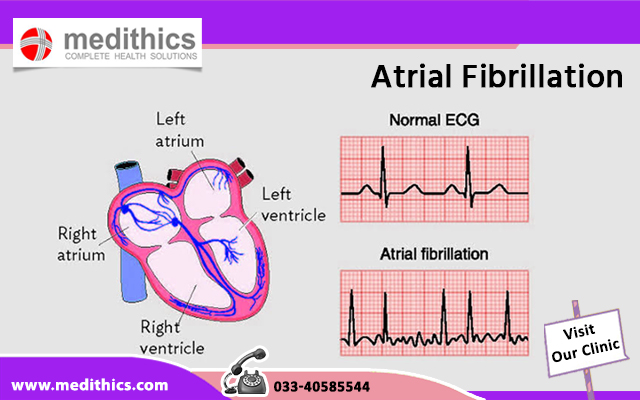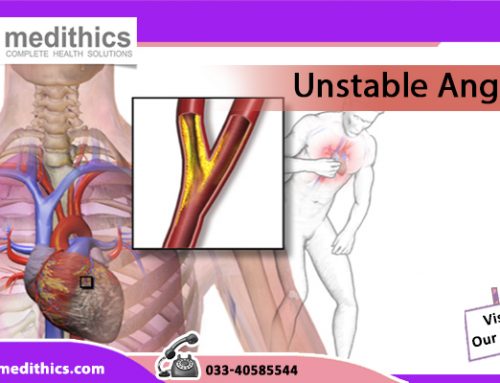A quivery, fluttery heartbeat is known as atrial fibrillation. There is an irregular beating of the heart’s upper chambers (the atria) in this condition. They fail to work in coordination with the lower chambers of the heart (the ventricles), which creates a problem in the flow of blood. You can have heart failure as your blood does not move well. There can be stagnation of blood in your heart and it often leads to clot formation. There can be a stroke if any blood clot gets into your brain. It is better to have proper treatment from a cardiology doctor in Kolkata if you have atrial fibrillation.
Causes
This condition can happen if there are the following heart problems:
- Heart disease as a result of high blood pressure
- Heart muscle disease
- Heart defect from birth
- Heart valve disease
- Past heart surgery
- Heart failure
This can also happen in people who have the following medical conditions:
- Overactive thyroid gland
- Sleep apnea
- Long term lung disease
Some medicines can also lead to this condition. The other causes are heavy alcohol, caffeine or drug use, genetics and infections.
Symptoms
You can have the following symptoms of when you suffer from atrial fibrillation:
- You may feel that your heart is racing or your chest is fluttering.
- You may feel dizzy or lightheaded.
- You may feel fatigued or weak.
- You may have pressure or pain in your chest.
- You may have shortness of breath.
Consult the best heart specialist in Kolkata if you feel any of these symptoms.
Diagnosis
The doctor will check whether the electrical activity in your heart is proper or not. He/she will suggest some diagnostic tests including:
- Blood tests:
In order to check the condition of your thyroid, liver and kidney, these tests are important.
- Electrocardiogram (EKG):
The purpose of this test is to record the pace of your heartbeat and the timing of the electrical signals that pass through it.
- Chest X-ray:
It is done to make sure the problem is not due to lung disease.
- Echocardiogram:
The purpose of this test is to make a video of the functioning of your heart.
- CT scans:
There is the use of special X-rays to make a video of your heart in this test.
- MRI:
The use of magnets and radio waves is common in this test to create snapshots and videos of your heart.
- Exercise stress test:
This test is done to check how your heart works during the time you are active.
The doctor often suggests the use of a Holter monitor for a few days while you continue your regular activities.
Treatment
Your doctor can choose among medications, surgery or even placing a pacemaker for your treatment depending on the severity of your symptoms. The different medicines a cardiologist uses are beta-blockers, calcium channel blockers, sodium and potassium channel blockers, blood thinners or anticoagulants and antiplatelets. If the doctor finds that the use of medicines is not giving the desired results, he/she can go for any of the surgical procedures of ablation, maze procedure, mini maze and convergent procedure. There can be the placing of a pacemaker that helps to keep your heart rate steady. Besides the treatment, you should also adopt healthy lifestyles to avoid future complications.






Leave A Comment
You must be logged in to post a comment.